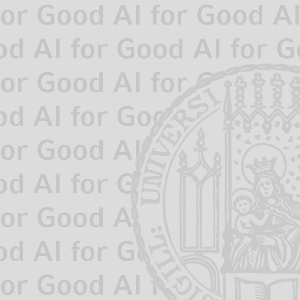- DE - Bitte beachten: Es gibt keine deutsche Kursseite, da der Kurs nur in Englisch angeboten wird.
- EN - Please note: This page has no German version because the course is only offered in English.
Quick Info: Master | Seminar | English | Summer Semester | 6 ECTS
Description
In this seminar, students will apply AI methods on real world data to address societal problems, such as:
- Detecting, analyzing, and countering malicious content and users on social media.
- The UN’s sustainable development goals
- Etc.
Students are also welcome to suggest own ideas after prior coordination.
Participants will analyse the data and apply different AI methods to visualize and gain insights on their data.
Students are encouraged to work in teams of four. The teams will summarize all findings in a report and a presentation.
Literature
Literature depends on the topics.

